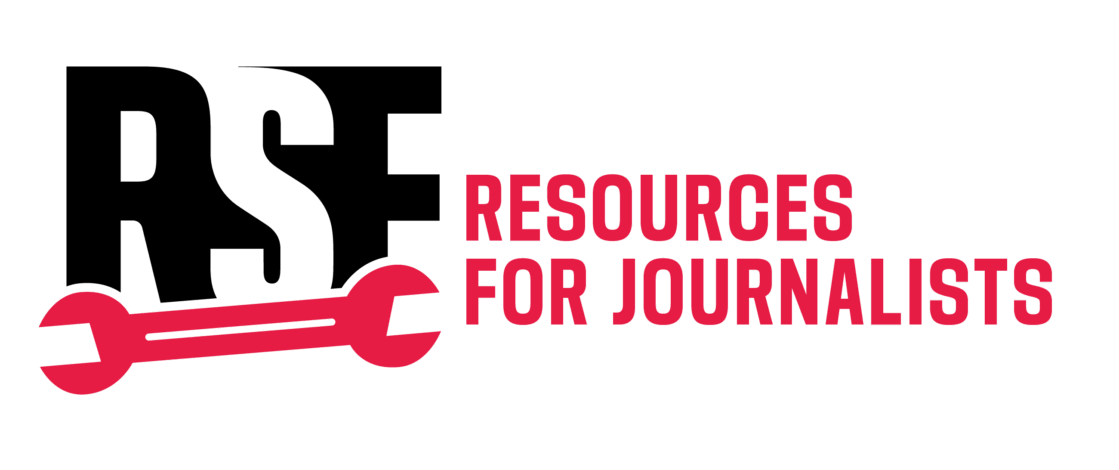Hate speech is one of the most common forms of online harassment journalists face. In this article, Reporters Without Borders (RSF) gives advice on how to respond appropriately when confronted with this phenomenon.
Hate speech is one of the most prevalent forms of online harassment, whether posted on platforms or sent through private messages. Attackers express their position in an inadequate, often offensive or violent way, and usually focus on specific characteristics of the victim’s identity such as gender, race, political opinion or religion, as a way to discredit the person in order to avoid discussing the original topic of conversation.
From slurs to intimidation content, hate speech can escalate to defamation and death threats. Sometimes, bad-faith actors, or “trolls”, act in a coordinated way to target a specific individual for the sole purpose of harming them.
Since journalists are constantly in the public eye and often report critically on controversial or sensitive topics, they have regrettably become a common target for online hate speech. With technology now being accessible to the majority of people, online harassment has become a growing threat to journalists, and can have a significant impact on their mental health and work results.
Reporters from marginalised groups, as well as women journalists, are particularly susceptible to be the target of hate speech. An ICFJ-led research project commissioned by UNESCO found that nearly three in four women journalists have experienced online harassment throughout their career, with some stating that online threats had been followed by attacks in real life.
How to counter hate speech attacks
- Document violations: Abusive and threatening content should be documented in case the harassment escalates and leads to a criminal investigation. Reporters should save the harmful content, or take a screenshot that displays the user’s identity and the time and date of posting.
- Block the attacker(s): On electronic devices as well as on social media platforms, there are options to block specific numbers, user profiles, content and keywords.
- Report harmful content to operators: Hate speech usually violates the terms of service of the online platform where it has been posted. Journalists should systematically report hate speech attacks to the social media or website operator, who will withdraw the content and notify the attacker(s) that action has been taken, or even ban them in case of repeated violations.
- Ask for support: Due to the volume of harmful posts and comments, reporting online harassment might be too much for a single journalist to take on. Reporters can also ask their community and supporters for help.
- File a lawsuit: Hate speech also often violates national laws (journalists can use this guide to understand related laws in 13 example countries) and can be answered to by a legal procedure.
How to prevent hate speech escalation
- Be fair play with your mistakes: Some online users may be legitimately angered by inappropriate or inaccurate reporting unwillingly made by a journalist. In these cases, an additional explanation or statement might help to prevent hate speech comments.
- Engage in a constructive conversation: Although many comments might sound harmful, some may just be clumsily expressing their writers’ interest in a constructive discussion. Journalists should try to counter their arguments with facts and turn the debate into a fruitful conversation in which everyone expresses their different points of view.
- “Don’t feed the trolls”: To ignore haters is one of the most important rules of social media. If counterspeech or discussion appears useless, it is best to ignore the trolls and come back on the platform a few hours or days later. In many cases, they have probably already moved on to their next target.
- Limit time spent on social media: Constant exposure to online hate speech can take a significant toll on a journalist’s mental health. Reporters may want to try to limit the time they spend on social media or turn off notifications.
Additional resources
- Reporters Without Borders (RSF): A report on the online harassment of journalists and on “troll” armies operating in various countries.
- Perspective API: A tool used by newsrooms to automatically identify potential hate speech.
- DACHS: A data-driven approach to countering hate speech. Journalists can sign up for alerts through their Twitter accounts to track hate speech on their timelines and contribute to the database with their hate speech annotation extension.
- PEN America: An online harassment field manual.
- OSCE Representation on Freedom of the Media: Resources for female journalists online.
- Thomson Reuters Foundation: Practical and legal tools to protect the safety of journalists, including against online harassment.
- Dart Center: A guide to online abuse and self-defence.



